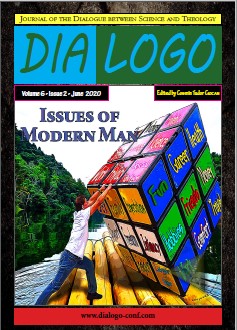Religious Controversies in COVID-19. Restrictions, State, Science, Conspiracies: Four Topics with Theological-Ethical Responses
Religious Controversies in COVID-19. Restrictions, State, Science, Conspiracies: Four Topics with Theological-Ethical Responses
Author(s): Christoph Stueckelberger, Cosmin Tudor CiocanSubject(s): Christian Theology and Religion, Human Rights and Humanitarian Law, Ethics / Practical Philosophy, Islam studies, Comparative Studies of Religion, Health and medicine and law
Published by: Dialogo Publishing House SRL
Keywords: human rights; imposition; faith; religiousness; pandemic; Covid19; public gatherings; religion; conventional medicine; State law; holistic treatment; social conflicts;
Summary/Abstract: The new Coronavirus, namely Sars-CoV-2, took the world by surprise and grew into a pandemic worldwide (called COVID-19 pandemic) in a couple of months since the beginning of 2020. It managed to lockdown at home almost half of the world population under the threat of illness and sudden death. Due to the extreme medical advises of containing the spread and damages of this threat, mostly directed towards social distancing, public gatherings cancelation, and contact tracing, each State imposed such regulations to their people and for all areas of social activity, including the religious ones. This articles analyses four topics: 1. Restrictions imposed by the State and reactions by religious organizations. The theological-ethical response focused on the fact that all religions what to save lives and defeat death. 2. The pandemic shows the sensitive relation between the State and religions and shows the differences in power relations in the different countries. The theological-ethical response calls for a partnership between the State and the religions in their territory. 3. The relation between science and religion is tested during the pandemic. Whereas the majority of believers adhere to scientific results, a good part refuses scientific knowledge. The theological-ethical response of the authors is that science and religion are complementary and not contradictory. 4. Pandemics as situations of high uncertainty are often accompanied by conspiracy theories that claim to know who is guilty for the disaster, who is the scapegoat, which has to be punished. The theological-ethical response gives theological reasons to say no to conspiracies and scapegoats and yes to take responsibility wherever we are in order to save lives.
Journal: Dialogo
- Issue Year: 6/2020
- Issue No: 2
- Page Range: 168-185
- Page Count: 18
- Language: English

